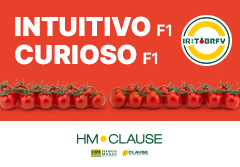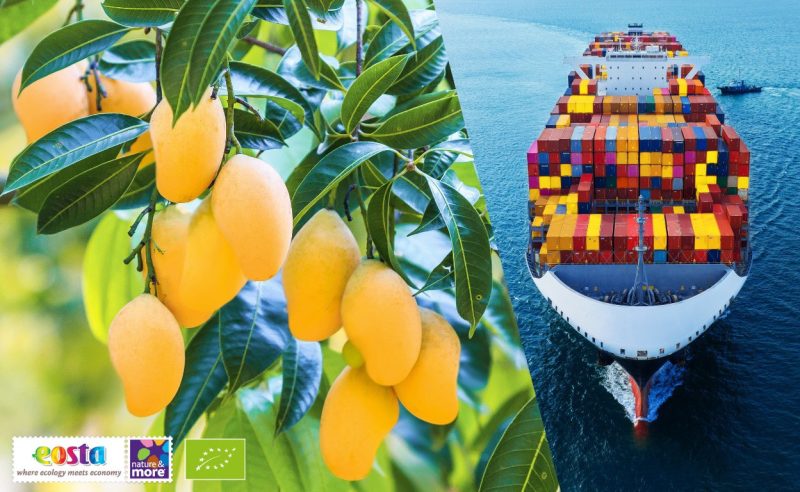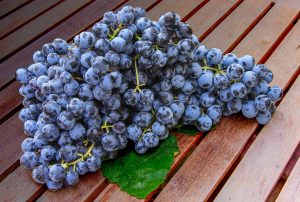Following a successful trial in 2023, Eosta has received its first container-load of Peruvian Ataulfo mangos this week during what promises to be a short and sweet season. Boasting the same creamy texture and honey flavor as air-transported fruit, the sea-shipped mangoes mark another sustainable step-forward for Eosta, with CO2 emissions reduced by a factor of 30 – from 8.8 kg to just 0.3kg – per kilogram of mango.
Normally transported by air from Latin America to Europe, Eosta has been working with a dedicated grower in Peru to examine practical ways to overcome the considerable hurdles to shipping Ataulfo mangoes by sea, including their limited shelf life.
According to Eosta mango buyer Joep van Koevorden, the solution has been a multi-faceted one, which has involved combining slightly-different harvesting methods with a shorter transportation process and adding Controlled Atmosphere on board to keep the fruit fresh.
He said: “Ataulfo is usually a variety that is transported by air rather than sea because it’s a delicate product which doesn’t survive the transit. We found a grower in Peru’s key mango-growing region of Piura who harvests at a slightly-lower Brix with no impact on quality, which gives the fruit a longer shelf-life allowing us to transport it by sea.
“At the same time, we were able to secure a vessel that would make far fewer stops than is typical from the Port of Paita in Peru to Vlissingen in the Netherlands, which meant we were able to save one week on overall transportation time. We also use Controlled Atmosphere on board to make sure the fruit reaches the receiver in optimum conditions.”
Crucially for customers in Europe, the organic Ataulfo mangoes being shipped over are consistently high quality with good flavor, an extended shelf-life, and an attractive overall appearance.
Van Koevorden added: “By expanding sea freight for our Ataulfo mangoes, we’re taking another step toward more sustainable fruit logistics — delivering great taste with a lighter footprint.”



















